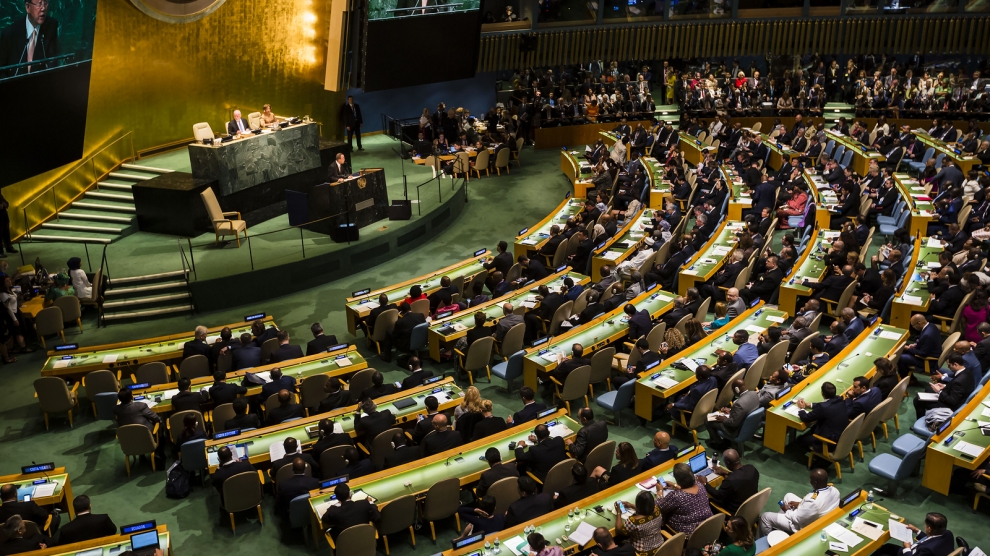The United Nations General Assembly (UNGA) has adopted a resolution calling on the Russian Federation to stop the illegal annexation of Ukraine’s eastern regions and the Crimean peninsula, as well as to withdraw all military forces accordingly.
The resolution on “the problem of the militarisation of the Autonomous Republic of Crimea and the city of Sevastopol, Ukraine, as well as parts of the Black Sea and the Sea of Azov” also called on Russian authorities to “refrain from efforts to extend its jurisdiction over nuclear facilities and material in Crimea.”
The statement was adopted with 63 votes in favour, 66 abstentions and 19 countries voting against the resolution. Those having backed Russia at the UN include Armenia, Belarus and Serbia.
According to Volodymyr Yelchenko, Ukraine’s permanent representative to the United Nations, the Russian Federation has been progressively militarising the Crimean peninsula by transferring to Ukraine nuclear capable aircraft and missiles, weapons, ammunition and military personnel since the framed Crimea referendum in March 2014.
“What is more alarming is that the occupying power is taking steps to nuclearise Crimea, in particular by deploying nuclear infrastructure on the peninsula,” Mr Yelchenko said, pointing out that Russia’s activities have far‑reaching consequences for security beyond the Black Sea area to South Europe and even in North Africa and the Middle East.
The resolution came as the leaders of France, Germany, Russia and Ukraine met in Paris to discuss prospects for peace in Ukraine’s war-torn Donbas region.
Russian deputy ambassador to the UN Dmitry Polyansky hit back at Ukraine, saying that “the people of Crimea have long made their choice: being exposed to a threat of a ‘blood‑drenched massacre’ that was coming from nationalists who came to power in 2014, they decided to reunify with Russia.”
“There is no problem of militarisation in Crimea,” he stressed.






Add Comment